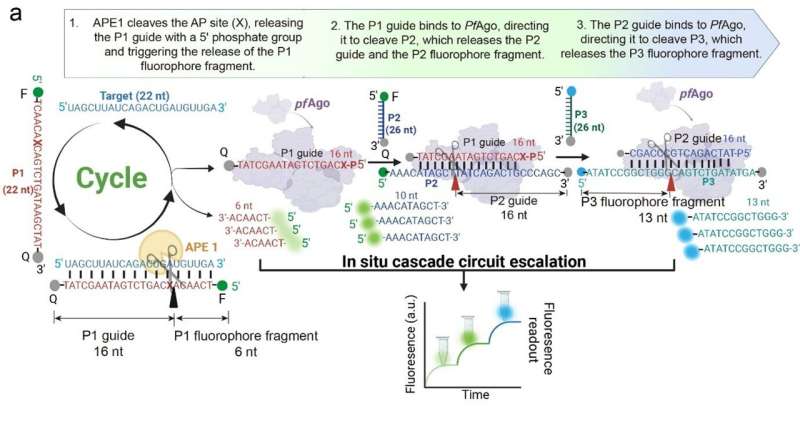Lying at the heart of many modern diagnostics, polymerase chain reaction (PCR) and real-time immunoassays provide high accuracy. However, they are hindered by lengthy processing time, the need for specialized thermal cyclers and skilled personnel. These constraints hamper rapid outbreak management, early cancer screening and bedside decision-making, especially in low-resource settings.
NAPTUNE tackles these challenges by replacing bulky amplification steps with a tandem nuclease cascade that converts biological signals directly into readily detectable DNA fragments, streamlining the diagnostic process.
The findings were published in the journal Nature Communications on 4 February 2025.
The study was led by Assistant Professor Chunyi Hu from the NUS Department of Biological Sciences, NUS in collaboration with Dr. Chuanxia Chen from the University of Jinan, China and Dr. Chuning Xu from the Lingang Laboratory Shanghai, China.

